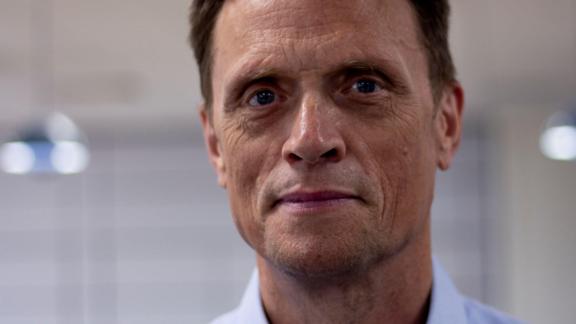Peering into the future?

While no one denies the need for effective regulation, if inspection is to be about learning and development not just control, it needs to draw on the strengths of peer-directed approaches, writes Annie Bliss.
Almost a year since Patricia Hewitt and the Health and Social Care Select Committee published reports on the topic, the government faces important decisions about how to enhance system accountability.
In the absence of more money and with no time to reform before a general election, the government’s current approach to managing our public services is to ‘tighten the grip’. The NHS - alongside local government and schools - is under particular scrutiny, with the government considering introducing one-word CQC ratings for integrated care systems (ICSs) from April. We have vocally opposed this idea since the passage of the health and care bill as an over-simplification that offers little value and false reassurance. With the recent tragedy of Ruth Perry, the headteacher who took her own life while awaiting publication of an Ofsted inspection report, it would be perverse for the CQC to introduce one-word ratings for complex systems just as Ofsted is moving away from them.
Peer processes
The government’s solution to managing financially challenged local authorities was to introduce a regulator in the new Office for Local Government or ‘OfLog’. It is also recruiting improvement advisers to oversee CQC assessments process. Under government scrutiny, the Local Government Association (LGA) is reviewing its well-established ‘corporate peer challenge’ offer to ensure it is delivering value for participants and complements other mechanisms for providing assurance to local and national government, including the CQC, Ofsted and OfLog. The LGA now offers peer review to support councils’ preparation for CQC’s assurance of their adult social care functions and DHSC is looking at how to provide councils with support following these assessments. In an increasingly crowded pitch, using the LGA’s peer review model would seem a sensible choice. Our members consistently tell us they would value an equivalent peer process to drive improvement and complement CQC’s assessments of ICSs.
…the lateral drivers of improvement – namely peer support, review and challenge – which have received much attention from system leaders and commentators … have thus far been largely overlooked by government
The most dynamic systems are those which combine top-down, lateral and bottom-up drivers of improvement. In a taxpayer-funded healthcare system, the government and its arm’s-length bodies play an important role in improving system performance through strategic oversight and allocation of resource (top-down levers). ICSs are working closely with patient organisations to enhance their engagement and co-production capabilities, strengthening their accountability to local communities (bottom-up levers). But the lateral drivers of improvement – namely peer support, review and challenge – which have received much attention from system leaders and commentators such as Sir Chris Ham, have thus far been largely overlooked by government.
Questionable perceptions and unclear definitions
The reasons for this are twofold. Firstly, there is a perception that peer-to-peer processes are ‘cosy’ and lack the ‘sharp edges’ needed to give parliament assurance that the system is functioning as it should. Given that the government funds the two statutory regulators - NHS England and the CQC - to provide assurance on system performance, why should it shell out more money on peer review? Secondly, peer review does not yet have a clearly defined role alongside formal regulatory processes.
Indeed, there does need to be some clear water between any peer-led process and formal regulatory processes. But the CQC already involves peers as specialist advisers in its assessments. And many ICS leaders are already engaging in peer review via the well-regarded programme we deliver jointly with the LGA and NHS Providers and we have received a huge amount of interest in our joint peer improvement programme with the Health Foundation’s Q Community. Only ICS leaders who have ‘walked the walk’ can understand and therefore unlock the unique challenges faced by their peers, holding a mirror up to provide a ‘warts and all’ assessment of ICS performance.
… driving improvements across a complex system cannot be achieved primarily through regulation
Fundamentally, driving improvements across a complex system cannot be achieved primarily through regulation. System leaders welcome appropriate accountability but tell us that the current regulatory approach is severely flawed. There are too many organisations involved, doing duplicative work and introducing excessive complexity. We often hear that inspection staff lack an understanding of the organisations they are assessing. As a result, this approach currently lacks credibility, often fails to prevent patient harm and forces system leaders to look upwards to Whitehall at the expense of transformation and doing what matters most to local communities.
Greater use of peer review both within the CQC’s assessments and as part of post-assessment improvement support could have the dual benefit of reducing the scope and therefore significant cost of CQC’s ICS assessments and helping ensure assessments lead to broader learning and real improvement for patients. It is surprising but understandable how little time health leaders get to spend looking at what their colleagues in different organisations are doing to meet common challenges. Crucially, peer learning means those undertaking a review can get as much from the process as those being reviewed.
If the government wishes to deliver consistent improvements in services for patients, it should enable system leaders by supporting and funding peer processes that are robust and complement formal accountability mechanisms. Our ICS members want us to support such a process, working with the LGA and other partners, and this is something we are currently exploring.
In the words of one ICS leader involved in one of CQC’s ICS pilots:
“If we all embrace it, agree to invest our own and senior team members’ time and then focus on peer review, learning and improvement we could end up with a process that adds real value.”
Annie Bliss is a policy adviser at the NHS Confederation. You can follow Annie on X (formerly Twitter) @anniebliss0



